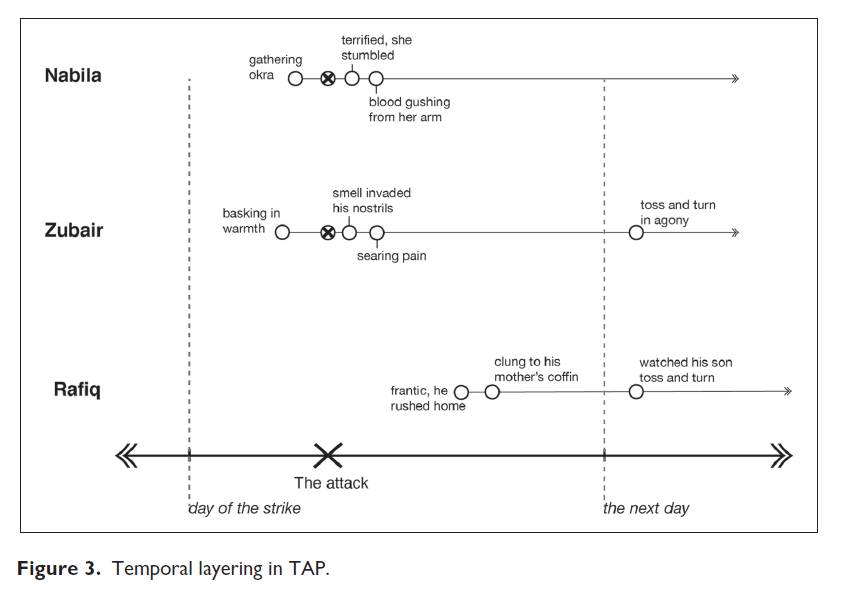E89: Distance and Suffering in News Reporting (w/ John Oddo, Cameron Mozafari, & Alex Kirsch)
On today’s show, Calvin and Alex sit down with the co-authors of a hot-off-the-presses article in Discourse & Society about journalistic reporting on US drone strikes in the Middle East: Dr. John Oddo (Carnegie Mellon University), Dr. Cameron Mozafari (Cornell University), and Alex Kirsch (MA Professional Writing graduate, CMU). In their article, entitled “Sustaining or overcoming distance in representations of US drone strikes,” they examine deictic language - words and phrases that “point” to contextual elements construed as “close” or “far away.” Specifically, they analyze how this type of language is used to make US audiences feel sympathetic or apathetic toward the US drone war and the suffering it caused to ordinary civilians in the 2000s and 2010s.
In our conversation, we talk with the authors about how deictic language can position a reader audience as “near” or far” from descriptions of suffering in terms of space, time, veracity, sense perception, emotion, and perspective. They take us through the major findings in their article’s comparison between how the Associated Press and The American Prospect used this language - to different extremes - in order to render people suffering from US military violence as immediate, worthy of attention and sympathy, or distant, opaque, and foreign. We also discuss the implications for how this language is used in reporting on other policy issues both foreign and domestic, and the affordances of this model for helping us understand how language in news reporting creates mental images.
John, Cameron, and Alex’s co-authored article:
Some of Alex Kirsch’s diagrams from the article, representing “deictic space”:
Works & Concepts Referenced in this Episode:
Bloom, P. (2017). Against empathy: The case for rational compassion. Random House.
Boltanski, L. (1999). Distant suffering: Morality, media and politics. Cambridge University Press.
Cap, P. (2008). Towards the proximization model of the analysis of legitimization in political discourse. Journal of Pragmatics, 40(1), 17-41.
Chilton, P. (2004). Analysing political discourse: Theory and practice. Routledge.
————. (2014). Language, space and mind: The conceptual geometry of linguistic meaning. Cambridge University Press.
Chouliaraki, L. (2013). The ironic spectator: Solidarity in the age of post-humanitarianism. John Wiley & Sons.
Kopytowska, M. (2015a). Covering conflict: Between universality and cultural specificity in news discourse, genre and journalistic style. International Review of Pragmatics, 7(2), 308-339.
————. (2015b) Ideology of ‘here’ and ‘now’: Mediating distance in television news. Critical Discourse Studies 12(3): 347-365.
An accessible transcript of this episode is available via Descript at the following link: https://share.descript.com/view/23Gp4lvIO5w


